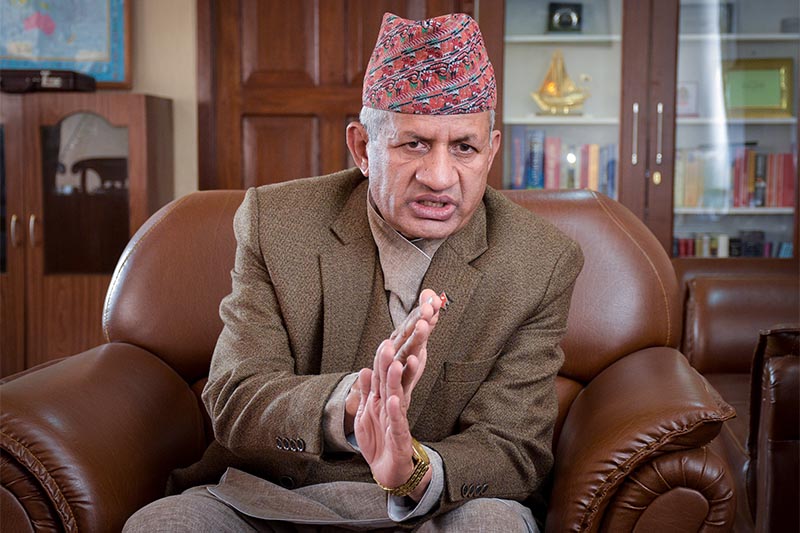Talks to focus on expediting past pacts
Kathmandu, August 19
Minister of Foreign Affairs Pradeep Kumar Gyawali today said the fifth meeting of Nepal-India Joint Commission slated to be held here on August 21 and 22 would focus on expediting, institutionalising and making plans for implementation of efforts made and understanding reached during bilateral visits of the two prime ministers.
The meeting will also discuss report of the Eminent Persons’ Group on Nepal-India Relations which is yet to be received by the two PMs.
Gyawali, who will head the 35-member Nepali delegation to the talks, said the agendas for the meeting had been grouped under five categories — politics, security and border issues; connectivity and economic cooperation; commerce and transit; energy and water resources; culture, education and others.
Indian delegation to the talks will be headed by External Affairs Minister of India Subrahmanyam Jaishankar, who will arrive in Kathmandu on August 21 and leave on August 22 after the meeting. During his stay, Jaishankar will call on President Bidhya Devi Bhandari and Prime Minister KP Sharma Oli.
Speaking at a press meet held at the Ministry of Foreign Affairs today, Gyawali said Nepal-India bilateral relations were now more focused on economic cooperation, evident from progress in implementation of past agreements such as Motihari-Amlekhgunj petroleum pipeline, Integrated Check Points in Birgunj and Biratnagar, Arun-III and Upper Karnali hydropower projects and Janakpur-Jaynagar railway.
Stating that the Raxaul-Kathmandu railway project will now enter the phase of preparation of Detailed Project Report, he said studies were being expedited for Inland Waterways project to operate mid-sized vessels on the Narayani and Koshi rivers. “We hope the meeting will help take past agreements to new heights,” he said.
On projects such as Pancheshwor Multi-purpose Project that are not moving ahead as expected, Gyawali said both the sides were holding dialogue and had felt the need to start afresh on such projects.
Gyawali said revision of Nepal-India Trade Treaty was also on the agenda for talks. “We hope to reach a concrete conclusion on the matter,” he said, adding the talks would also dwell on agriculture cooperation and inundation along the border.
On the EPG report, Gyawali said Nepal hoped both the prime ministers would receive the EPG report soon and take it to the implementation phase. “We’ll convey this hope to the Indian side,” he said.
Among all bilateral mechanisms, Nepal-India Joint Commission is at the highest level and is co-chaired by foreign ministers of the two countries. The commission was established in 1987 and looks after a gamut of bilateral issues such as economic, commercial, transit, industrial, water resources, multi-purpose projects, and other matters of bilateral interest.
Nepal and India take turns to host the meeting. The first and third meetings were held in 1988 and 2014 in Nepal, while the second and fourth meetings were held in India in 1991 and 2016.






